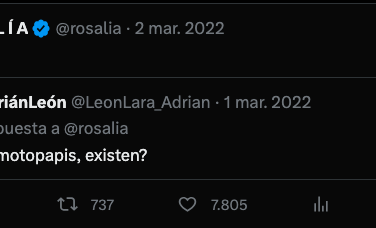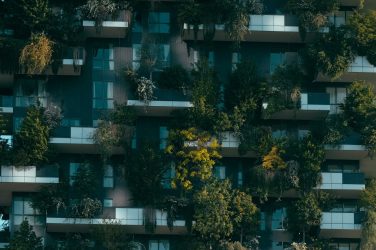Five years ago, as an intrepid young student full of Erasmus expectations, I somehow found myself teaching English in a small secondary school in deepest Provence. It was an important year for me, teaching me how to adapt to new places and putting me on the European path I now find myself on. Now living in Berlin, I caught up with one of my former pupils, the fashion designer and magazine editor Erik Raynal, to talk about life in small towns, fashion in Europe and what he’s been up to since we last met.
When I arrive at the café where we are due to meet, Erik is already there, his dark hair cropped short over the ears with a long sweeping fringe from right to left. He is wearing a pinstripe suit jacket with one of the arms artfully torn off to reveal a white long-sleeved shirt. Far taller than I remember, he rises from the stool to greet me with a firm handshake.
We make our way into a back room with thumping electronic music playing and a gaggle of Spanish young people in the corner laughing loudly. The air is thick with smoke, not all of it of the tobacco variety, and our antique china coffee cups chink against the saucers pleasingly. It is hardly the best interview environment in terms of acoustics (as I write this my ears are straining to hear his soft voice, only slightly accented, on the recording I made to type up later), but it is somehow fittingly representative of the city we both choose to call home.
The conversation starts tentatively. It has been five years, after all, and our previous contact was always hierarchical. As much as I tried to persuade my pupils to use the informal “you” their strict French habits did not allow them to. And so I was Mr. Ruff, a name I hated because in reality I felt much closer to these kids than I did the teachers up there in the staff room, discussing the latest dastardly attempts by the French government to make them work longer and for less pay. I told Erik about this, and he surprisingly told me that the pupils had found me “quite serious, despite your age”.

MKR describe their work as “minimalistic, avant-garde and clean”
After we exchange complaints about the current state of the Berlin weather, the conversation quickly moves onto fashion, a subject that I am not ashamed to say I know very little about. Thankfully, Erik is somewhat of an expert. He founded MKR magazine in Paris in 2012, before expanding into the English-speaking market a year later. As well as editing the magazine, he is behind the creative studio, TRIPTYQUE, offering a platform for young and innovative designers to display their talent. He divides his time between the French capital, Berlin and London, where he lived for most of 2013.
According to MKR’s website, it focuses on “emerging and established talents in the fields of fashion, contemporary art and culture”. I asked Erik which city he found the best for an up-and-coming fashion designer to work in. “London and Paris are so established, yet over here is just starting. Berlin feels like London 6 years ago. It feels like something is happening. People are trying new things, being a bit more conceptual.” And how about living? “London and Paris are so intense, I needed a break. I really like Berlin, but there are certainly fewer opportunities.” This answer seemed to chime with other artists I have spoken to here. The city’s energy and high quality of life on a budget naturally attract young creatives from all over the world, yet there seems to be a lack of people with the means to buy their work.
It perhaps doesn’t help commercially that Erik’s style is rather avant-garde. If you haven’t already looked up MKR, I suggest you do so. It is safe to say that their style won’t be seen on the racks of H&M anytime soon, but rather fit this “conceptual” tag. Its pages are filled with pale, androgynous models adorned with bold colours and unusual materials. In that sense he has no desire to be the next Yves-Saint Laurent, “I just want to be doing what I like and to be able to make a living from it”.
This is an admirable trait, and one that exudes a certain subtle form of confidence. I also privately note that successful designers, including Monsieur Laurent himself, probably also felt this way in the early stages of their career. It nevertheless feels like a far cry from the Erik I remember: shy, studious and eager to please. “When you’re sixteen you don’t really know yourself. I’m very different from who I was when I was sixteen.” I feel strangely proud that his English is still so good. I then realise that this is almost certainly down to the twelve months he spent in London rather than the one hour a fortnight he spent with me five years ago.
International displacement
When choosing locations for my Erasmus year, I naturally wanted something different from my grey native isles. Sun was a top priority, as was being somewhere with numerous cultural influences. And so I put Marseille down as my first choice. What I got was Miramas, a small town about an hour’s drive west of Aix-en-Provence, notable only for its location as the meeting point of two different railway lines. A French version of Crewe.
Much like myself, Erik, Parisian-born, had himself been displaced to Miramas against his will, with his family moving down from the capital whilst he was still at school. Could he live there again one day? “No, it’s not open-minded enough and there is very little to do.” I remember feeling the same – Miramas is one of those satellite towns with only schoolkids and families. Everyone between the ages of 18 and 30 went in search of the bright lights of Marseille or Aix.

Erik Raynal
Although Erik and I are in many ways very different, we now both find ourselves in a foreign land away from the traditional ties of family and nation. For both of us it is unthinkable that our futures could be confined within the borders of one particular country. When probed about his views on the EU (my specialist subject), he said, “The most important aspect of Europe is the ability to travel easily and exchange ideas.” I couldn’t agree more.
My year abroad was tough, but it opened my eyes to other ways of living and gave me the confidence to push myself into unfamiliar situations. Erik hasn’t had the opportunity to do Erasmus yet, but he has nevertheless discovered in his own way that there are more opportunities beyond the borders of your own nation state. “If you want to work in fashion you have to be international. You cannot just stay in Paris and that’s it.”
By the time we finish our conversation, the Spanish people have left and with them the smell of weed. The music is still blaring, but I don’t think either of us are listening. In a strange way I found the whole interview quite cathartic. It was an important year in my life, and to speak to someone that was there was almost a sort of therapy. All I can hope is that on his side he doesn’t see me as his teacher any more, but a fellow traveller in a city full of dreamers.
Cover photo courtesy of Chris Ruff








